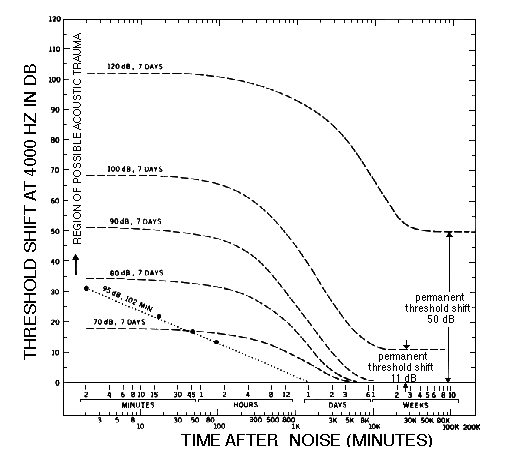 Temporary Threshold Shift
Temporary Threshold Shift
Have you gone into a concert able to hear the subtle 30 decibel whisper going in, but struggled to hear 70 decibel conversation when you left? This is a phenomenon known as Temporary Threshold Shift, and the severity and recovery timetable can vary depending on how loud the music was and how long you were there. Sometimes it’s hours, sometimes it’s days. It makes sense though – if you went and stood by a lawn mower for 3 hours, wouldn’t your ears be a little worn out?
Even worse, this temporary loss of hearing occurs in the frequency ranges most associated with speech. Not only can you not hear, but you can’t hear exactly what you want to hear after a concert. As sound levels increase, the range of possible shift increases as well. Wearing DownBeats reduces the possible shift so you can experience life after a concert just as well as you did before the show.

DownBeats Attenuate Evenly Across Sound Frequencies
Unlike foam ear plugs, DownBeats reduce sound relatively evenly across sound frequencies so that all sound levels come in crisp and clear, allowing you to hear just as you would want to but without experiencing Temporary Threshold Shift due to high decibel levels.


Long Term Hearing Damage
What’s worse than Temporary Threshold Shift? When that shift becomes permanent. Noise induced hearing loss is real and irreversible. We are able to hear because of small hair cells in the ear canal which send impulses to the brain, allowing us to hear. Overexposure to loud noises can damage these hair cells for good, meaning sounds will seem muffled or mute compared to how you were once able to hear.

What’s worse than hearing nothing at all? Hearing an annoying and pestering ringing. Constantly. That’s Tinnitus – a constant ringing in the ears which can be caused by noise related hearing loss. Like noise induced hearing loss, tinnitus is permanent, and currently there is no cure. DownBeats can’t fix these problems if you’re already suffering from them, but they can help you to avoid them before it’s too late.
